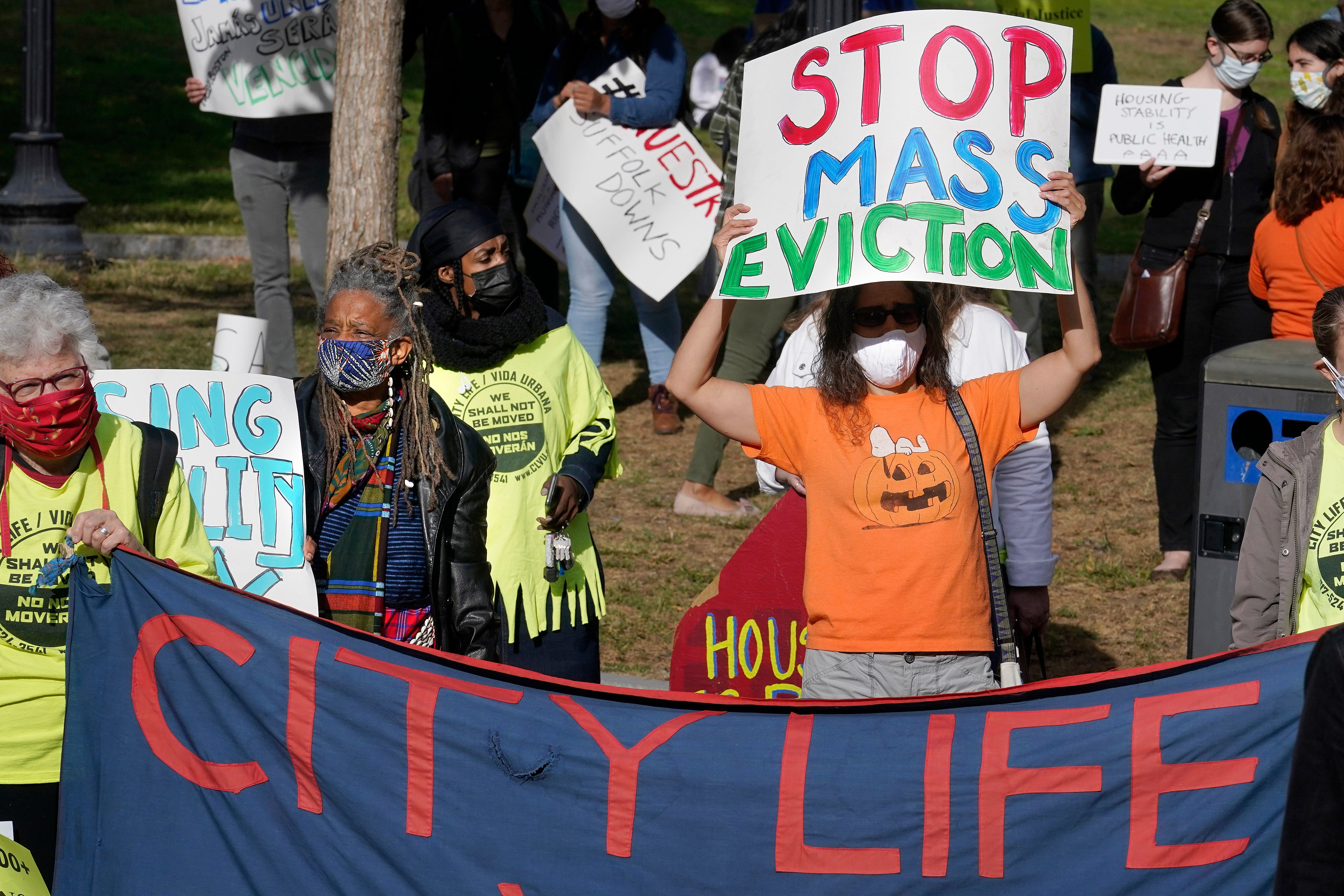EXPLAINER: What happens after foreclosure moratorium ends
Since early 2020, banks across the U.S. have been banned from foreclosing on homes as part of the federal government’s efforts to assist families feeling economic pain caused by the pandemic

Your support helps us to tell the story
From reproductive rights to climate change to Big Tech, The Independent is on the ground when the story is developing. Whether it's investigating the financials of Elon Musk's pro-Trump PAC or producing our latest documentary, 'The A Word', which shines a light on the American women fighting for reproductive rights, we know how important it is to parse out the facts from the messaging.
At such a critical moment in US history, we need reporters on the ground. Your donation allows us to keep sending journalists to speak to both sides of the story.
The Independent is trusted by Americans across the entire political spectrum. And unlike many other quality news outlets, we choose not to lock Americans out of our reporting and analysis with paywalls. We believe quality journalism should be available to everyone, paid for by those who can afford it.
Your support makes all the difference.Since early 2020, banks across the U.S. have been banned from foreclosing on homes as part of the federal government’s efforts to assist families feeling economic pain caused by the pandemic. On Saturday, the ban will end, potentially putting thousands of families at risk.
Much like the federal eviction moratorium for rental units, it has been extended several times. The scale of the potential problem is much less than the Great Recession but it’s still worrisome.
An estimated 1.75 million homeowners — roughly 3.5% of all homes — are in some sort of forbearance plan with their bank, according to the Mortgage Bankers Association. By comparison, about 10 million homeowners lost their homes to foreclosure after the housing bubble burst in 2008.
___
WILL THOSE 1.75 MILLION HOMEOWNERS LOSE THEIR HOMES IMMEDIATELY?
Not necessarily, industry officials say. Banks have little incentive, for various reasons, to put delinquent homeowners into foreclosure at the moment. Housing prices have been rising steadily for years, and many parts of the country are now facing record high prices for existing homes. That means that there are likely few homeowners underwater in their mortgages, owing more on their mortgages than the overall value of their house. That means it is more likely banks and mortgage servicers have an incentive to restructure a loan, or tack those missed payments onto the back end of the mortgage.
It also takes time to start foreclosure proceedings, at least 120 days per federal law, plus time for court proceedings.
There are likely to be more forced sales than foreclosures, in some cases. That way a bank gets its money back and the delinquent homeowners gets the equity they earned in the home and will walk away without a negative mark on their credit report.
___
WHEN CAN WE EXPECT FORECLOSURES TO START?
Mortgage industry analytics firm Black Knight expects some foreclosure proceedings to start in September, when the pandemic forbearance plans will come to an end. While roughly 1.75 million homeowners are still in forbearance, that figure is expected to keep decreasing. But still, the firm expects roughly 1 million homeowners to still be seriously delinquent, 90 days or more, on their loans.
___
WHAT CAN HOMEOWNERS EXPECT IN TERMS OF RELIEF?
Last week, the White House announced a series of measures aimed at preventing foreclosures. The new steps from several federal agencies, including Department of Housing and Urban Development, aim to provide homeowners with a roughly 25% reduction in borrowers’ monthly principal and interest payments. Along with that, federal agencies will continue requiring mortgage servicers to give borrowers who can resume payments the option of moving missed payments to the end of the mortgage at no additional cost. Those making less than they did before the pandemic will be offered assistance to help them look for work and catch up on back taxes and insurance.
Members of Congress are also pushing banks and mortgage servicing companies to provide some sort of private relief. Rep. Maxine Waters D-California and chairwoman of the House Financial Services Committee, publicly asked the CEOs of the major Wall Street banks earlier this summer whether they all planned to keep borrowers in forbearance if needed when the moratorium ends. All of the CEOs of the big six banks said they planned to do so.